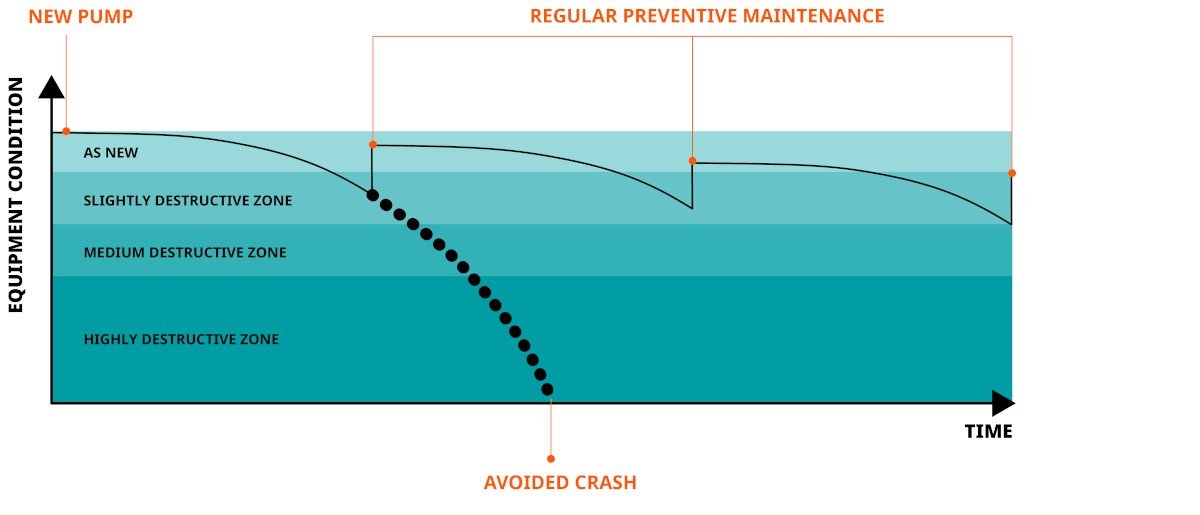Why not to skip vacuum pump maintenance
A lifetime of 30 years or more is possible for vacuum pumps. But just like neglecting to change the oil in your car can lead to engine damage and costly repairs, failing to carry out routine maintenance can result in breakdowns and irreparable damage.
Sure, it's tempting to let the maintenance of your vacuum sealer slip. At Minipack, we know that and we’ve seen it all!
We eliminated this issue with the MX Series, the first and self-maintaining vacuum sealer. But what about all the operators of Minipack MVS Series and every other make and model out there?
Some might be thinking “So what? If we skip it for a few months, we’ll just flush it out the pump will be at full capacity, just like new”. No, unfortunately, it won’t!
Certain things, you can’t undo. Once the oil in the pump gets more contaminated, the conditions become more destructive and irreversible. The chart below visualizes this very clearly. (That’s why under regular conditions, the self-maintaining pump of the MX Series won’t even reach this point)
Source: Busch Vacuum Solutions
The 5 consequences of skipped vacuum pump maintenance:
1. Shorter pump lifetime
A vacuum pump that is treated well will last longer. Depending on the type of vacuum pump, a lifetime of 30 years or more is possible! A minor maintenance issue – like an oil change, or replacing a worn vane or seal – is a relatively low investment, both in terms of time and cost. And it is vital to ensuring the longevity of your vacuum pump.
2. Lower efficiency
As service intervals increase and parts wear out, energy consumption rises. For instance, an exhaust filter that needs to be replaced is already filled with oil, making it harder for the vacuum pump to push air through it and requiring more power. When the filter is changed, the vacuum pump doesn't have to work as hard, resulting in a lower carbon footprint and a happier pump.
3. Higher costs
An oil change costs less than repairing a vacuum pump due to insufficient lubrication. Regular maintenance costs less than replacing multiple parts in a rotary vane vacuum pump. Replacing spare parts regularly also costs less than lower energy efficiency and higher electricity bills. And lastly, running on schedule costs less than production downtime caused by a breakdown.
4. More noise and vibration
A poorly maintained vacuum pump can turn a production room into an annoyingly noisy environment - and a health risk if it continues for a long time.
5. Unplannable timings and higher downtime
Our certified service technicians need to diagnose your machine physically and on-site. That just takes time, not including waiting for spare parts, and fixing what may have become a bigger problem. However, if you plan your maintenance, you can decide when your vacuum pumps go offline, resulting in minimal or even zero downtime for your process.

